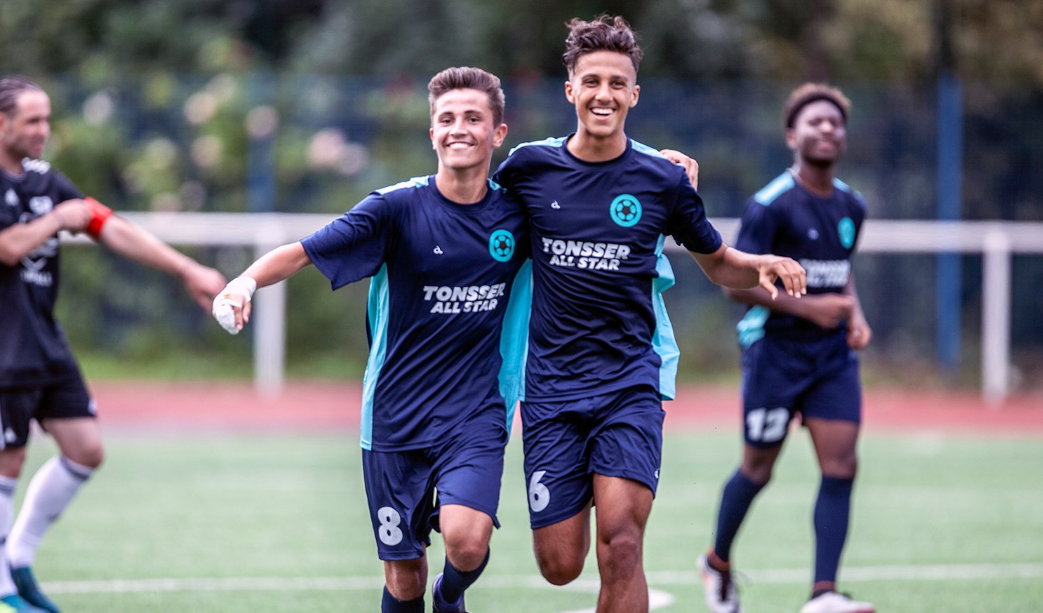Top-Level Scouting: This Is How the Best Football Clubs Discover New Talents
It's no secret that football clubs engage in top-l

It's no secret that football clubs engage in top-level scouting to discover new talents. Most clubs have football scouts that connect them with unsigned players. Their role is to seek talented players that can be a perfect fit for specific clubs. Club scouts are very common, and they know the ideal players that can benefit their squad and their employers.
However, there are agency scouts and international scouts. Agency scouts are sometimes the agents that recruit talents and send them to clubs' web where they have connections. International scouts work for international squads, recruiting signed footballers to play for clubs in their countries. Once a player shins in their country, an international scout can help them play for an international country squad.
But what do football scouts look for in players? Overall, football clubs want players that will benefit them. Therefore, top-level scouting entails finding players with specific attributes to help the clubs. Here are the essential qualities that football clubs look for to discover new talents.
Game Impact
If you play casino slots, you know that gamblers implement a very minimal strategy. Ideally, almost everything is entire to chance with these games. But football is different because a player must do something to impact the game's outcome.
A player can have the questionable ability or touch on the ball yet score five goals in one session, affecting the key results. A goalkeeper can also provide big saves during the key moments and keep the team in the game. A defender, a forward, or a midfielder can also do something unique to save or facilitate their team's win.
Therefore, top-level scouts consider the ability of new talent to affect the game uniquely. A player can make several passes but not move the team anywhere. Another might not touch the ball but lift the team with an adequately timed challenge.
Technical Ability
Top-level scouting entails identifying players who know their teams' culture and style. The technique is a football attribute that includes passing, finesse, touch, and shooting abilities. It also entails the one-on-one and dribbling skills.
Technique ability makes a player stand out and deal with a ball uniquely because that's what football is mainly about for most people. A player that can manipulate the ball correctly will most likely impress the scouts. A scout will consider the player's reaction upon receiving the ball. Do they seem coordinated or balanced? How do they use their feet to control the ball? Long passing and shooting may not be a priority at first because a player can develop them.
Instead, scouts focus on how a player runs with the ball and their balance and coordination upon receiving it. And this shows whether the player is gifted.
Physical Attributes
Scouts can judge a person's physical structure without seeing them play football. Some can do this by watching the players walk out or warm up. Unlike football clubs, top-level scouting doesn't focus on the physically developed teenagers with good bodies.
The technical aspect is essential for the scouts when considering teenage players. A teenager that depicts specific physical attributes is better than others, which sets them apart in the scouts' eyes. For instance, explosive speed is a vital physical attribute. Modern soccer players are physical machines cardio-wise and strength-wise.
Tactical Awareness

Football clubs look for tactical awareness at a specific age. While this may not be a vital factor up to 14 years, scouts analyze their understanding and knowledge of their team's system when signing the first contract. Ideally, scouts look for players that understand their teams offensively and defensively.
Essentially, football clubs want players that understand their roles and the expectations of their teams when having the ball and when not possessing it. Every player must understand the characteristic of every position and what the club expects of them tactically in every situation. For instance, should a player take a better place when possessing the ball or when not?
Since scouts consider the team's long-term future, they want to ensure that the new talents can fit in and improve their clubs in the long term. Therefore, players should know where to run, the place to be, and the tactical moves in specific spaces.
Movement
Top-level scouting involves checking a player's movement off and on the ball. New talent must consider a teammate's options even when not having the ball. For instance, how does a new talent tackles the opponents' runs? Does the new player take a position that provides an outlet for the teammates when they possess the ball? Does the player make runs that create a space for the teammates?
Competitiveness
Top-level scouts know how to identify kids that will do anything possible to excel as professional football players. These teenagers have hunger and competitiveness that sets them apart from the other kids.
Football clubs consider things like presence, character effort, voice, the ability to get over bad situations, and more. Many young players want to sign with professional football clubs but don't show it. Therefore, top-level scouts consider kids that show the fire to become professional footballers.
Body language matters for football clubs when scouting for new players. A composed player off and on the field stands a better chance of playing with a professional team. That's because pro-team environments require players that will be good with teammates, the media, the fans, and the referee. Therefore, football clubs consider the new talent's competitiveness and body language when signing new players.
Final Thoughts
Most football clubs use scouts to discover new talents. Therefore, kids that want to sign contracts with professional teams must impress the scouts with their field performance and abilities. Being at the right place and exhibiting tactical awareness, competitiveness, and physical attributes can help scouts notice new talents. Additionally, football is like any other job. A player that wants to play for a professional club must exhibit excellent overall behavior because a good impression might be vital in their football career. Good behavior can make things easy for coaches, teammates, and other stakeholders in a football club. Therefore, scouts consider it too.







